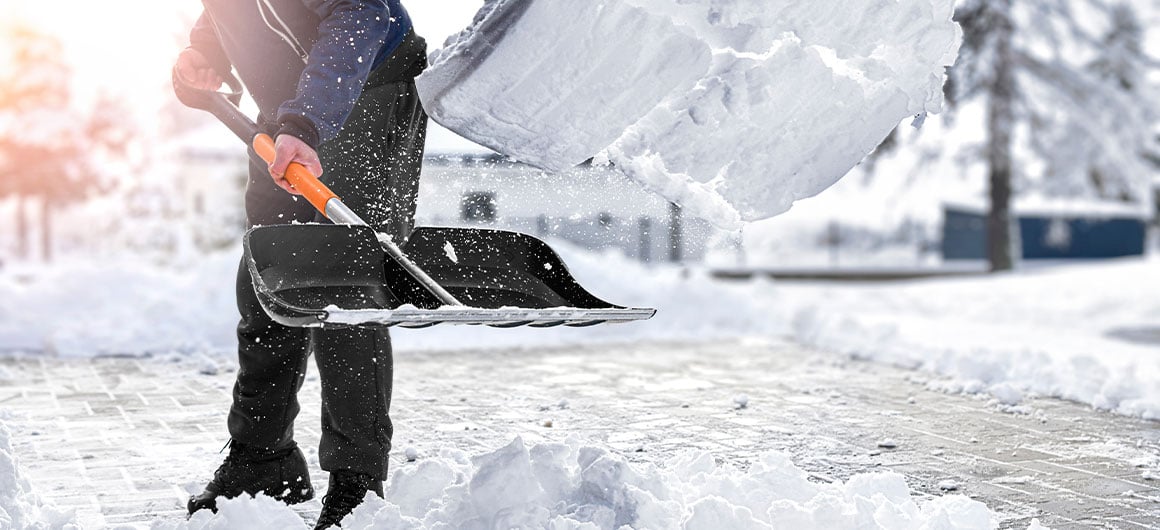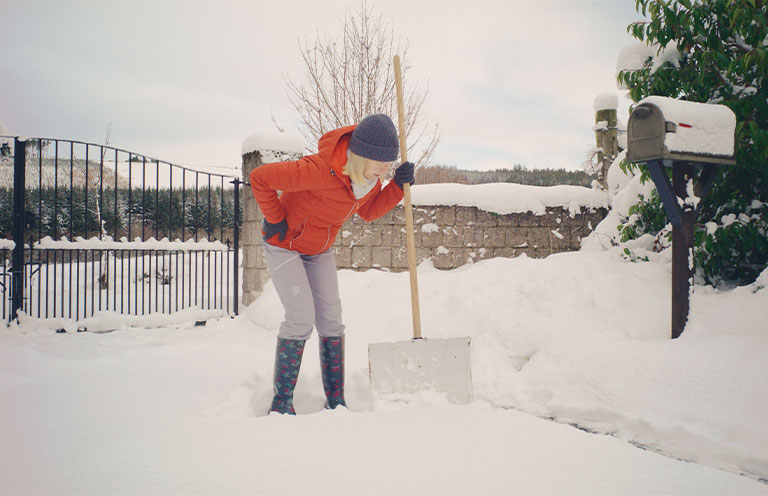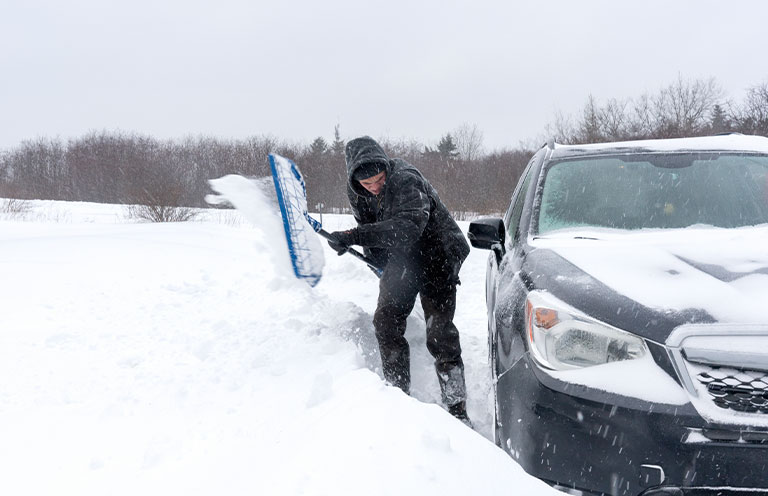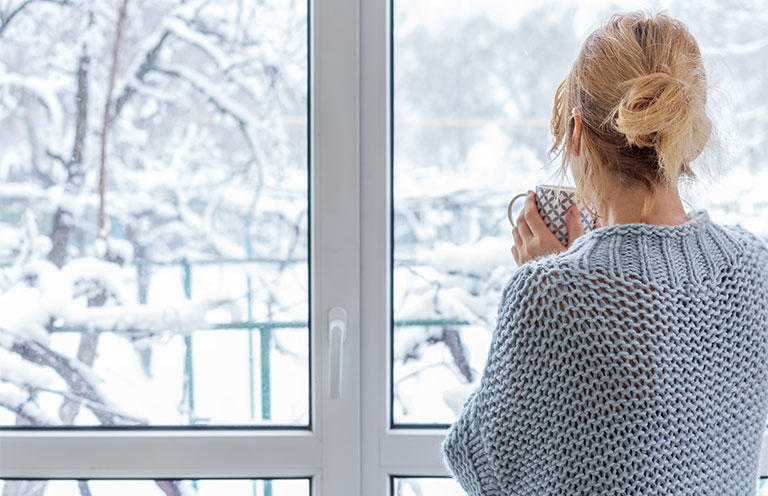Snow Shoveling: The Health Risk That Shouldn’t Be Ignored
Medical professionals share the risks and tips to help you stay safe this winter

Winter is here, and snowstorms are inevitable across the Northern US. AccuWeather’s winter weather forecast predicts an increase in snowfall this season, especially for the Northwest, the Upper Midwest, and New England. For many of us, that means it’s time to grab the snow shovel.
Before you begin clearing your driveway, it’s important to assess whether it’s safe—especially if you’re an older, out-of-shape adult.

Who’s most at risk for snow-shoveling-related hazards?
Snow shoveling isn’t exactly a favorite winter activity—but for some, it’s downright risky.
“Shoveling snow is a high-intensity activity yet is often undertaken by [those] who are not conditioned to that level of activity,” says Dr. Vanessa Redd, chief of emergency medicine at University of Maryland St. Joseph Medical Center.
Snow shoveling can trigger serious health issues, such as heart-related emergencies, muscle strains, broken bones, frostbite, and more. If you have certain preexisting conditions, you may be at increased risk. These include obesity, high blood pressure, high cholesterol, diabetes, a history of heart attack or stroke, cardiovascular disease, pulmonary disease, osteoporosis, previous injuries, a sedentary lifestyle, or a history of smoking.
Redd adds that age is also a critical consideration.
The elderly (generally 65 years or older) are at increased risk, she says. “They tend to have more underlying medical problems and are at higher risk for falls and musculoskeletal injuries.”

The increased risk of heart attacks
Of all the health problems associated with snow shoveling, heart attacks are the biggest concern—and for good reason. Studies have shown a strong link between heavy snowfall and an increased risk of heart attacks, particularly in men with preexisting heart conditions or those who lead inactive lifestyles and engage in snow shoveling.
Redd likens the physical activity to an “unplanned stress test” that puts strain on the body of those who aren’t properly conditioned.
Dr. Jim Liu, a cardiologist at The Ohio State University Wexner Medical Center, explains that snow shoveling can elevate both blood pressure and heart rate.
“The cold temperatures cause blood vessels to constrict, which can cause a more rapid increase in blood pressure,” he says. This, combined with the strenuous activity that people may not be used to doing, can put a lot of stress on the heart.
In short: If you are not physically fit (or suspect you might have an undiagnosed cardiovascular condition), leave the snow shoveling to somebody else.

Snow Shoveling Safety Tips
Experts recommend talking to your healthcare provider before shoveling snow.
If your doctor gives you the green light, Redd recommends treating snow shoveling like you would an exercise class. “You should dress appropriately, hydrate, stretch beforehand, and pace yourself,” she says.
Additionally, Redd recommends taking breaks as needed and listening to your body. If you notice any concerning symptoms—such as chest pain, significant shortness of breath, lightheadedness, or nausea—immediately stop shoveling and call 9-1-1.
If you aren’t cleared by your doctor to shovel snow, the safest solution is to find help to handle the snow shoveling. Consider hiring help or asking a family member or neighbor. Many local communities have volunteer teams to help in these situations, so it’s worth reaching out to your local city hall or community center to collect that information in advance. You might be surprised at how many people are willing to step in and help.
